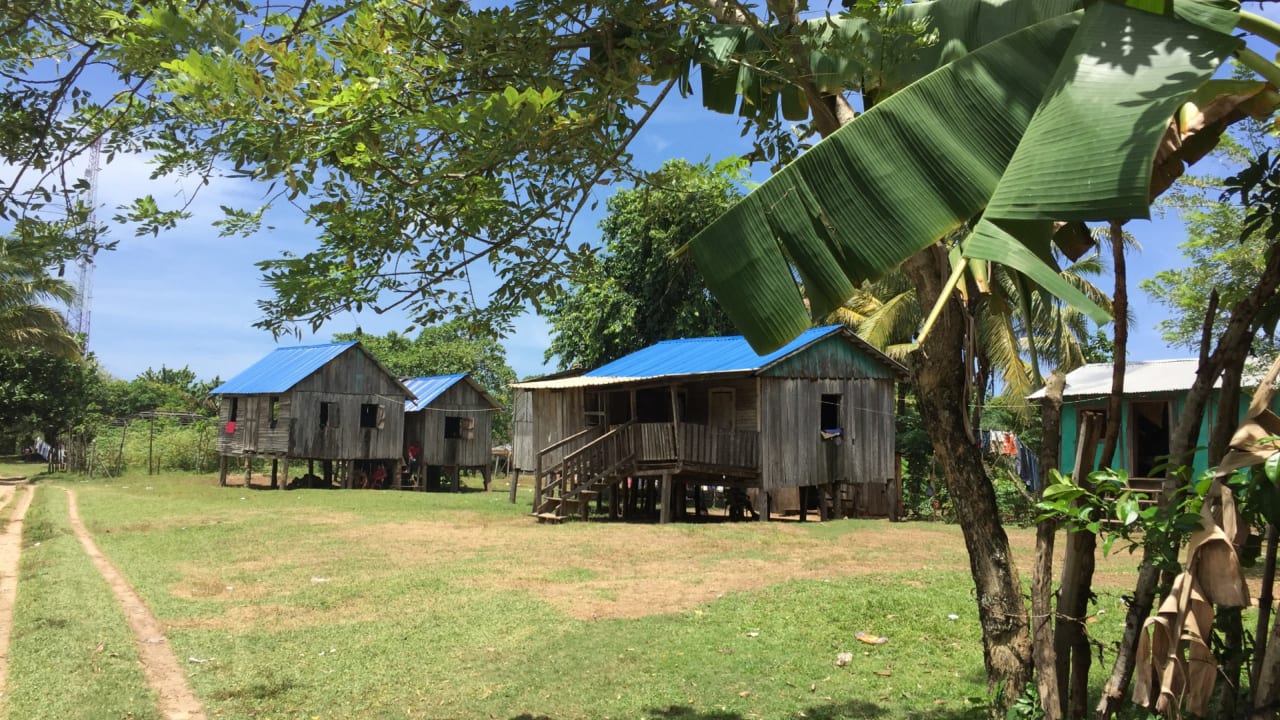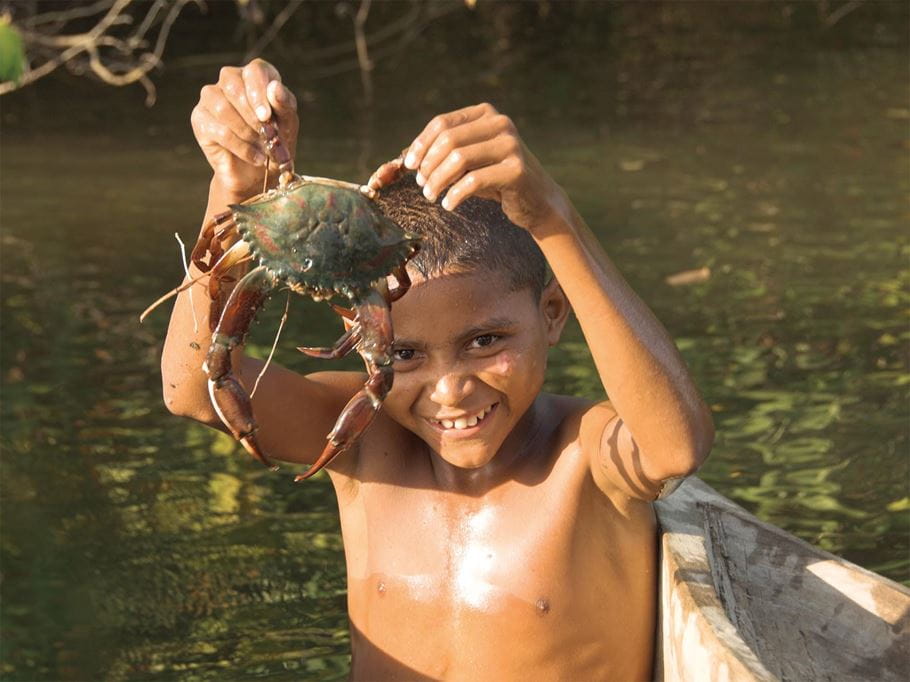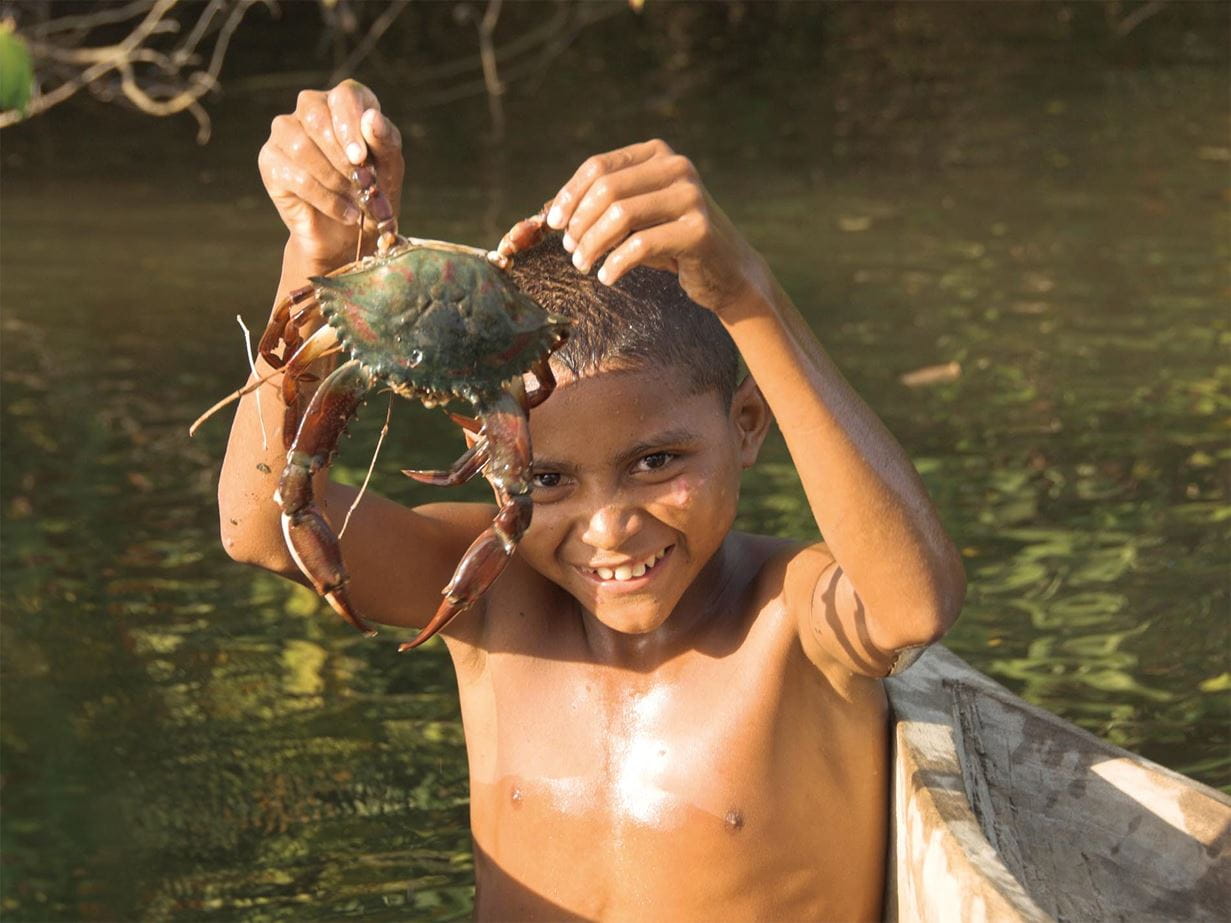The region of La Mosquitia on the east coast of Honduras contains forests, lagoons and a rich variety of animals and plants. It is home to various indigenous peoples, whose life is strongly linked to the land. They have traditionally used their land for gathering food, hunting, fishing, and collecting wood for building canoes and houses.
Articles
Indigenous land rights in Honduras
After 25 years’ struggle, the indigenous people of La Mosquitia were finally granted secure land rights
Written by Osvaldo Munguía 2018 Available in English, French, Portuguese and Spanish



The indigenous peoples of La Mosquitia depend on the land, forest and rivers for food and resources. Photo: Geoff Crawford/Tearfund
Mopawi, a Tearfund partner organisation, has been working in La Mosquitia since 1985. At first, we worked on projects such as improving crop yields and accessing clean water and sanitation. All this is fine, and in fact we continue to do it. However, when we analysed the long-term problems facing the indigenous peoples, we found that they had no legal rights to the land, not to mention the forest.
The most significant problem for indigenous peoples is illegal occupation of their land by others. Often heavily armed, these people fence off the land and begin deforesting it. We therefore started working towards achieving indigenous peoples’ collective (shared) rights to their land, forests and rivers.
Seeing is believing
First, we arranged for representatives from La Mosquitia to visit the Tolupán and Pech indigenous peoples in the ‘interior’ of Honduras for a learning exchange. The Tolupán and Pech had obtained land titles from the government in about 1860, supported by a Catholic priest. They had many years’ experience of dealing with loggers, cattle ranchers and others wanting to take their land. After this, we went on an expedition to see how the deforestation area was expanding towards La Mosquitia. We talked to the residents of the region and found that they were struggling to survive.
All of this had an incredible impact on the people from La Mosquitia. Only two years earlier, when we first raised the issue, they had not realised it was important. But after the visits, a sense of urgency to get legal rights to the land, and to stop or at least reduce deforestation, spread over the entire region.
We then started visiting government authorities linked to land issues. We discovered that there were no Honduran laws allowing people to claim collective land rights – especially when indigenous peoples were the ones asking. But we kept insisting that the government address the issue. At first, the community members did not know how to advocate, even with the local mayor. But over the years Mopawi trained them to speak out for themselves. Today, they are confident discussing their issues even with the president of Honduras himself.
It took from 1987 to 2012 to gain the first collective land rights for a cluster of 39 communities along the coast. After this, the government granted 11 more land and territorial titles, giving indigenous peoples the right to the natural resources as well as the land itself. These rights applied equally to both men and women. In total, the amount of land granted was 14,000 square kilometres. This was a great achievement and we thank God for letting us see it with our own eyes.
Mopawi is now working with the indigenous peoples on the governance of these territories and the sustainable use of their natural resources.
Advice for others
If I could give one piece of advice to others working on similar issues, it would be to arrange visits for exchanging experiences. Talking to the people who have lived through similar issues is the best way to learn. After that, people can go back and adapt what they have learnt to their local context.
I would also advise organisations to learn a lot about laws regarding land rights, treaties, sustainable management of natural resources, and how to help people achieve food security with the least deforestation possible.
View or download this resource
Get this resource
Get this resource
Written by
Written by Osvaldo Munguía
Osvaldo Munguía is the Director of Mopawi. Web: www.mopawi.org Email: [email protected]
Similarly Tagged Content
Share this resource
If you found this resource useful, please share it with others so they can benefit too.

Subscribe to Footsteps magazine
A free digital and print magazine for community development workers. Covering a diverse range of topics, it is published three times a year.
Sign up now - Subscribe to Footsteps magazine




